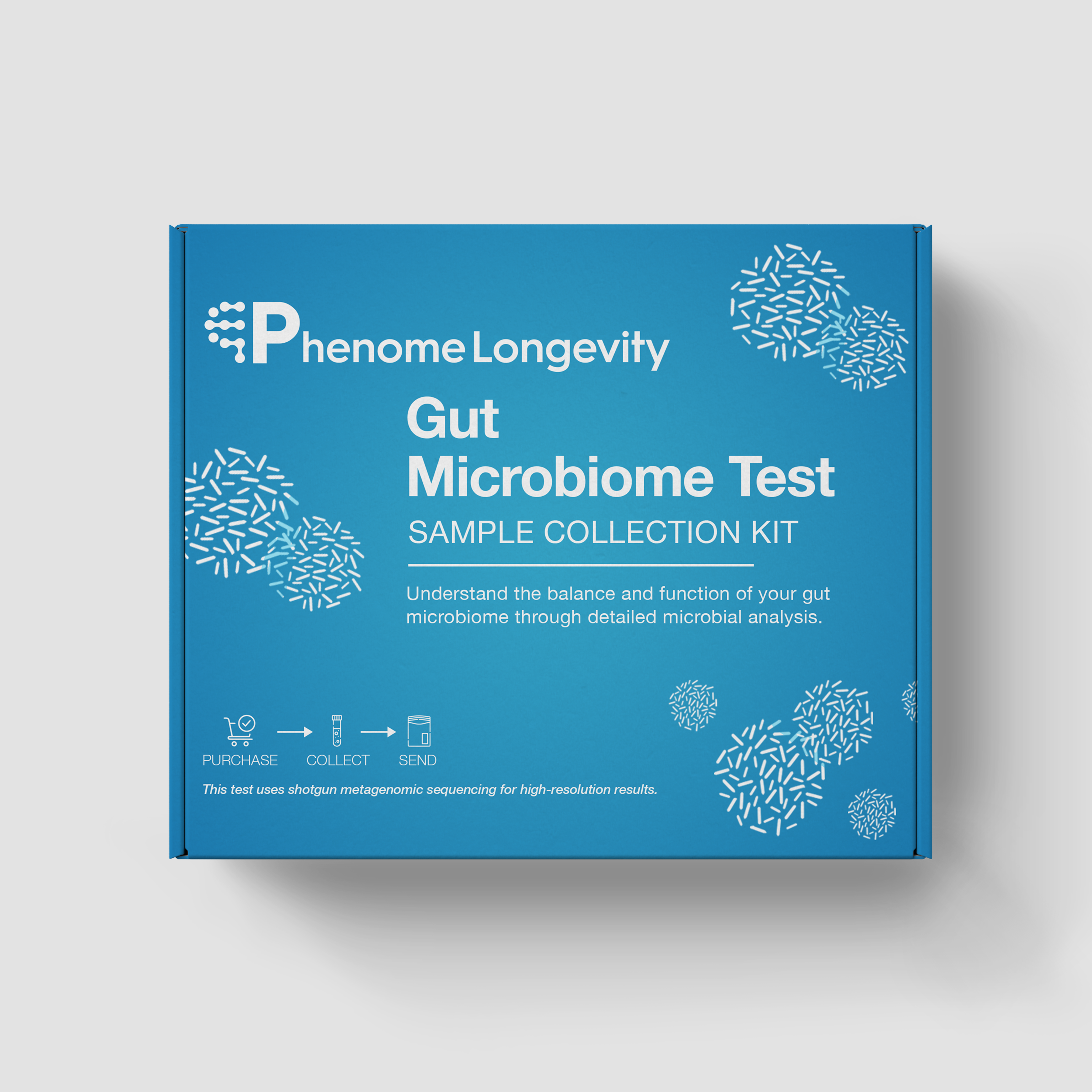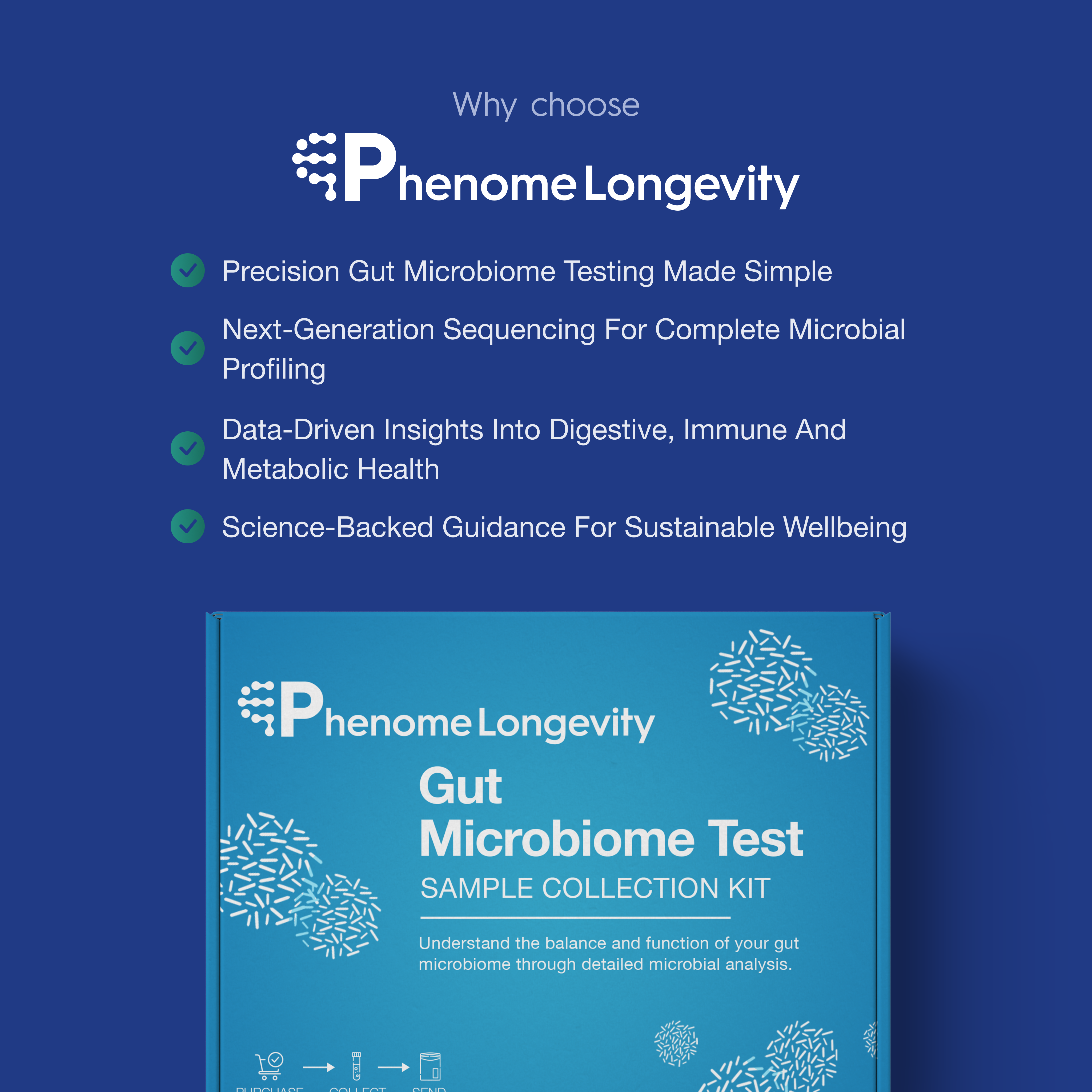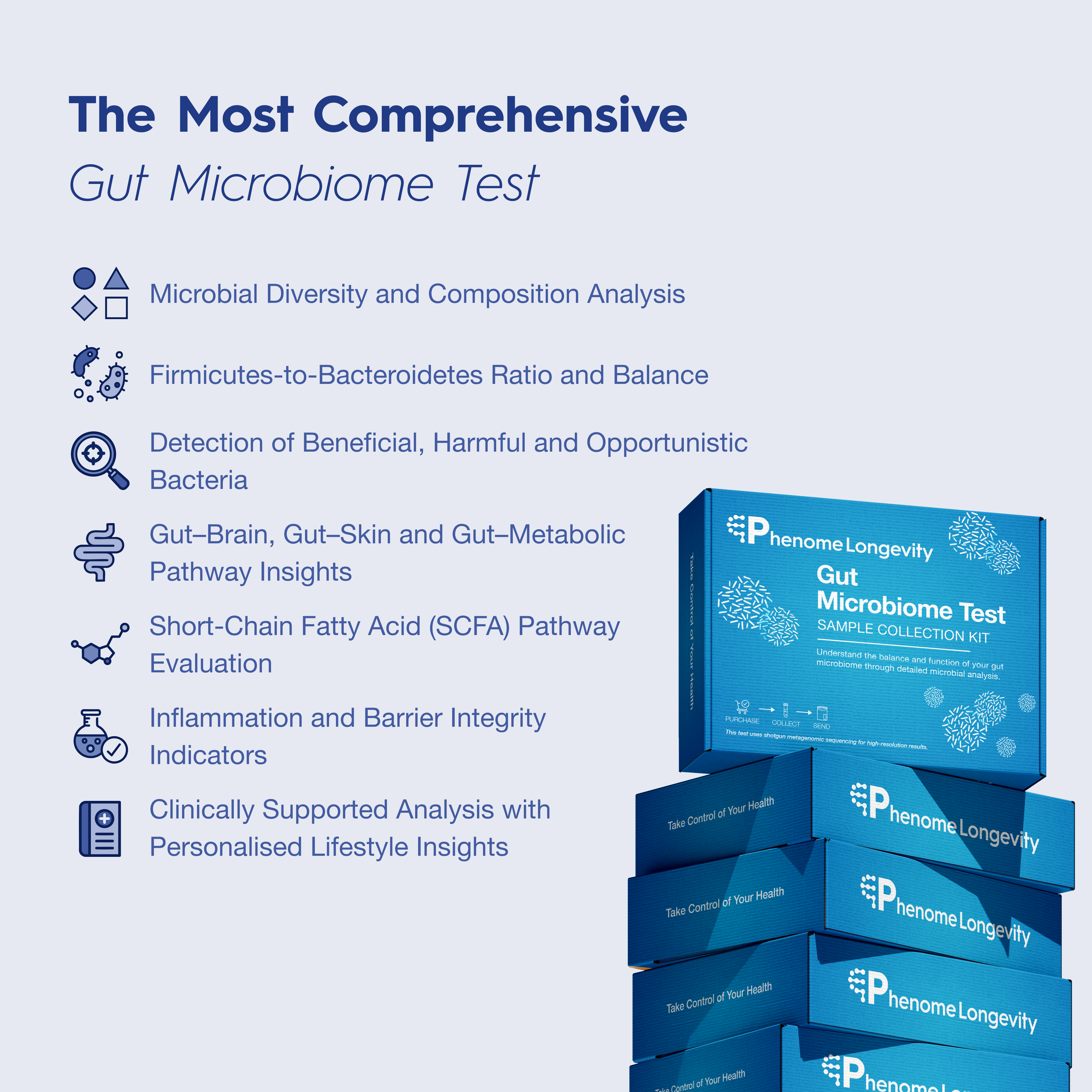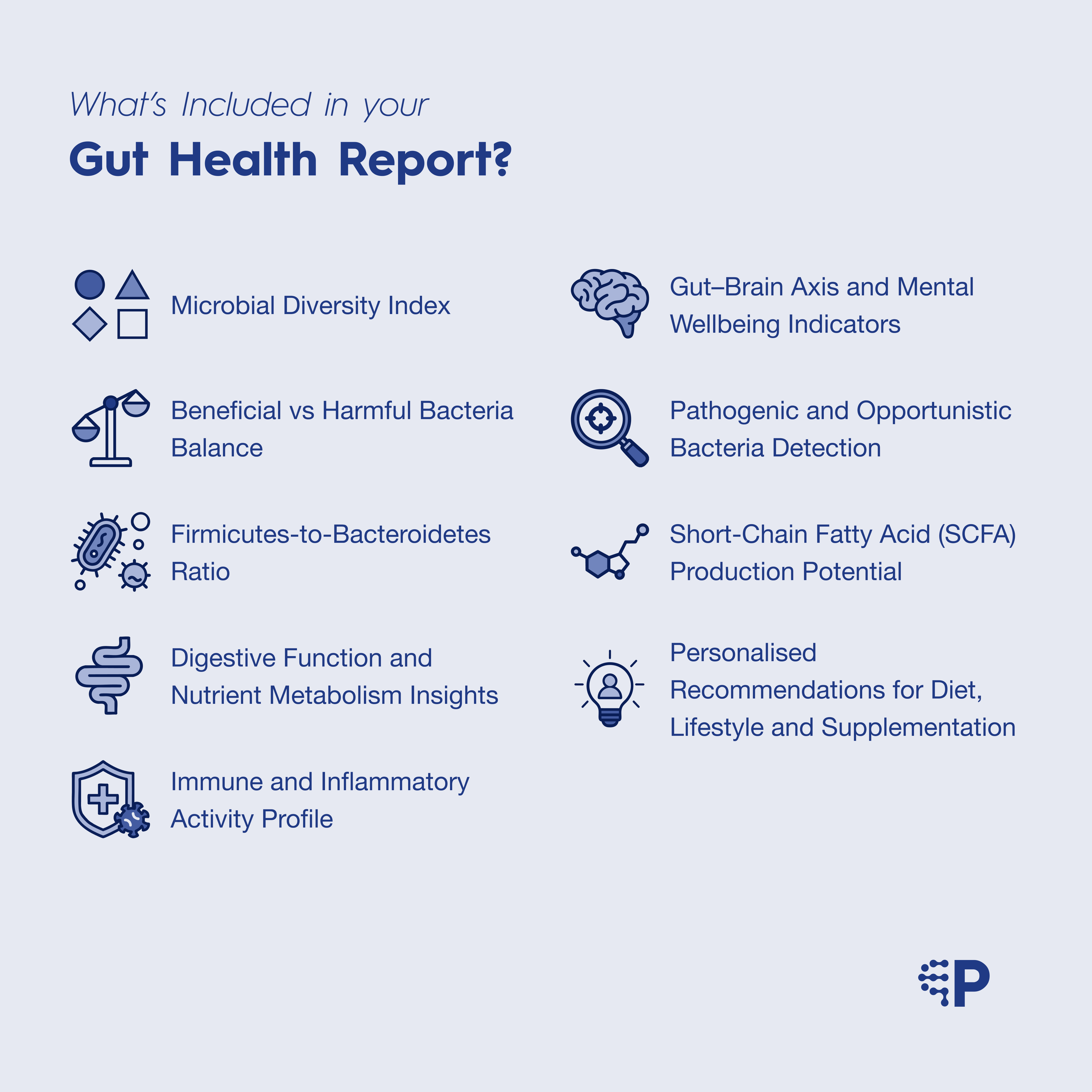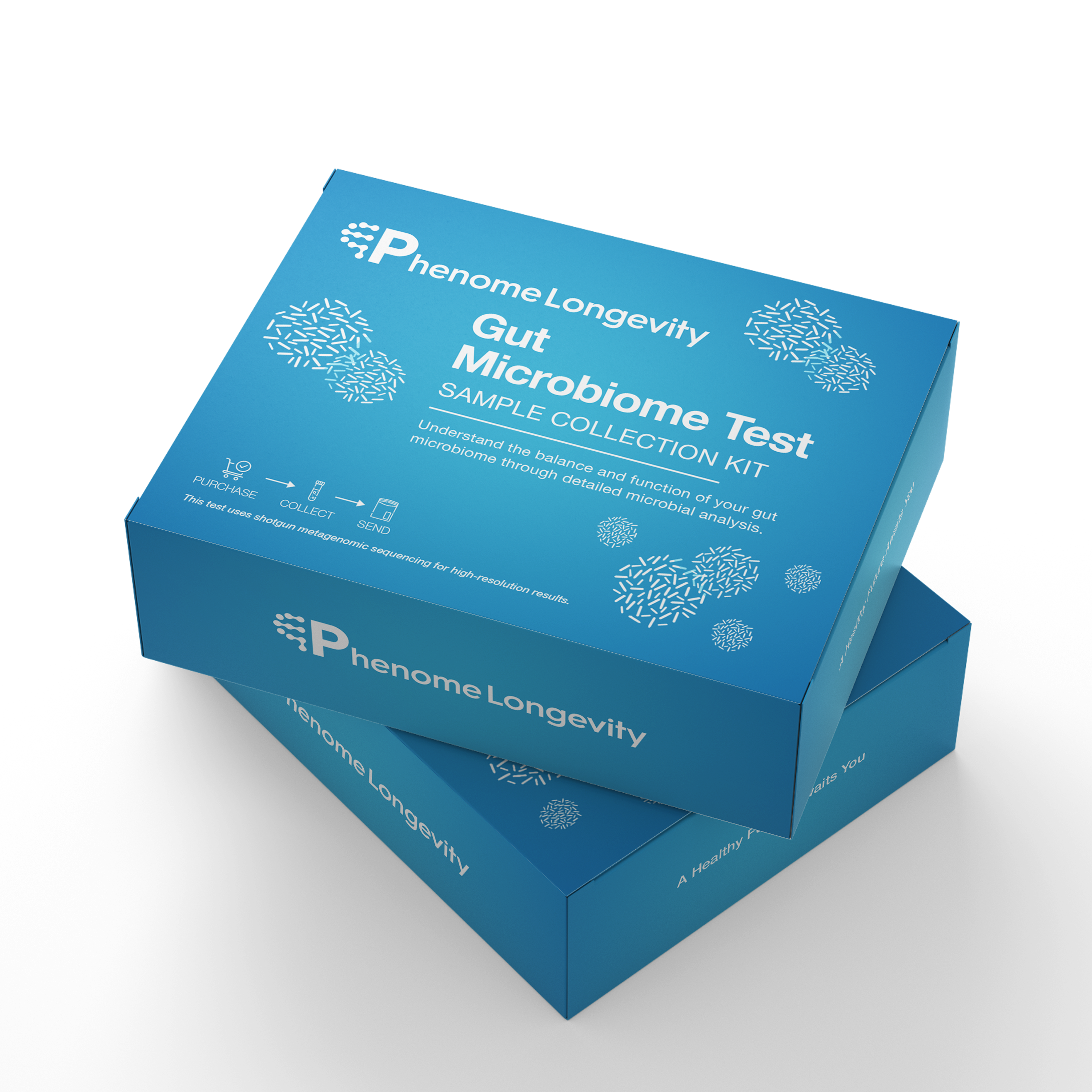Who Is This Test For
The Gut Microbiome Test is designed for anyone who wants to take control of their health by understanding how their gut affects their body and mind. It provides valuable insights across several categories of individuals, helping each person uncover what their gut is truly telling them.
Each category benefits from a personalised report that turns scientific data into clear, actionable steps to improve digestion, energy, and balance.
For Everyday Health
- For anyone improving digestion and energy
- To understand how the gut affects mood and vitality
- To maintain balance through science-based insights
For Those Experiencing Symptoms
- For bloating, irregular digestion, or post-meal discomfort
- For skin issues like acne, dryness, or inflammation
- For fatigue, low energy, or brain fog
- For those who often get sick or have low immunity
For Nutrition and Fitness Enthusiasts
- To optimise diet, supplements, and probiotics
- For athletes and active individuals improving recovery and nutrient absorption
- For anyone seeking a performance edge through gut health
For Preventive and Long-Term Health
- To prevent chronic conditions linked to gut imbalance
- For those with a family history of metabolic or autoimmune disorders
- For anyone valuing proactive, data-driven longevity


